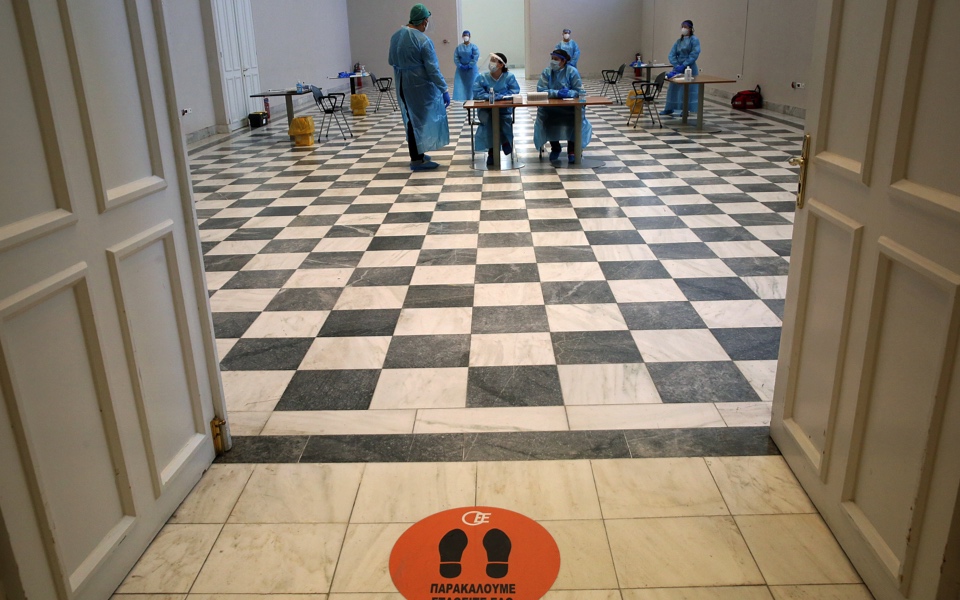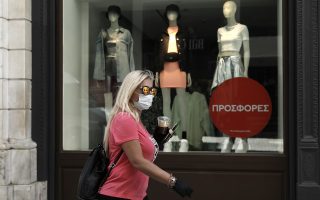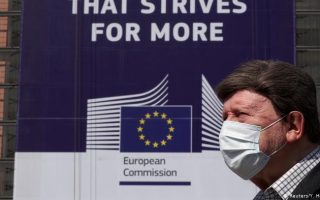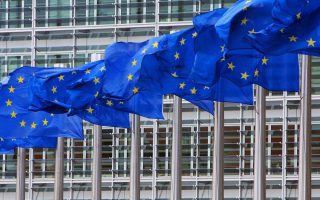Markets are mistaken, the new normal is here to stay

Pandemic response. The economic recovery will not be until 2024-25 at the earliest, and bigger government is one of the long-term changes now under way.
We are in a crisis. Nobody would deny that. At some point we will all face the reality that disruption is with us for some time.
The largest social disruption in the US since the 1960s, sparked by the racially charged and tragic killing of George Floyd. The worst economic downturn since the Great Depression. The greatest public health threat since the Spanish flu.
All connected, all amplifying each other.
Yet we have reopened, through policy and protest alike.
And no matter how uncomfortable it may make us, we must understand and challenge this ‘‘new normal’’ accordingly.
Markets, which we have come to view as all-encompassing judges of risk and opportunity, are reading this crisis wrong. Sharemarket optimism should be ignored. Its high-flying mood is nothing more than a punt on the flow of free money.
First, the economy. Just as they did after the 2008 scare, consumers are loading up their savings – so economies won’t likely get off their backs on consumer spending.
We may well get a fairly brisk recovery in places where public finance can be wheeled in freely and to effect. In already overloaded debtor nations, that will only make matters worse.
All up, I expect a credit crash in the next economic wave.
The virus is still spreading and in some places it will run amok. Thankfully that is not the case in Greece but as the borders open to tourists the situation will have to be monitored closely.
The extent of that risk is so great that we really can’t assume pre-Covid-19 mobility before we achieve near universal immunity, presumably from a vaccine.
Given the time required to confirm the safety of a vaccine and to then produce it in vast quantities, I think the earliest we can expect a low point or base in this crisis is 2023. The earliest recovery would then be in 2024-25.
Even this picture relies on big ifs. Such as: if we get a true vaccine, which itself is no small challenge, made tougher by Covid-19 mutations that effectively require specific vaccines.
Changes that have already occurred in our lives are likely to be baked in.
Travel, for example, won’t go back to the way it was for a very long time. So tourism will be different. Countries like Greece, that rely on tourism, will have to adapt. Mass tourism will go away so the new model will need to be one of prioritizing quality over quantity.
In fact, a whole range of human, consumer and business behaviors of a sustained kind are under way.
Covid-19 accelerated the digital effect, boosting the interactions and commerce of digital means to levels a long way above the pre-pandemic experience.
Work has changed. In Greece and elsewhere pandemic containment measures have fallen heavily on those who work in customer-experience roles such as hospitality, travel and tourism. These often are also minimum-wage jobs, their loss creating profound effects for people who have few options.
This problem existed before Covid-19, but now it is massive and entrenched, with little evidence of relief.
We simply have to act to protect people most affected by the pandemic, not least because other forces at work will heighten risks to their welfare.
The United States and China were already headed for collision, and Covid-19 has made matters worse. China wants global leadership, but not for a mutual benefit.
China wants a world on China’s terms, and that will force people to make choices. Companies will have to decide whether they have two ways of operating, and maximize effort where it best suits them.
That is a simple choice for US or Chinese companies, but tough for countries such as Australia and Canada and even tougher for countries like Greece. Their choices will be made harder by the fact that the US is likely to focus on its own interests for at least a decade or two.
In the end, most Western-based companies prefer the American way of doing things.
For the West, however, I think capitalism and democracy are going to have a sort of divorce after what has been a very much market-defined marriage.
Governments are going to have a big role. They must step in to deal with schisms and inequality that are a blight on society.
They must underwrite strong, accessible health and education systems. They must act to manage outcomes for the wider community, to give citizens a fair share of what can be a highly prosperous period.
A new innovation agenda in countries responding to the Covid-19 impact will do better than we have done in creating new work, valuable work that engages technology and skills in ways that are both sustainable and rewarding.
Personally, I have been encouraged by the Covid-19 experience in its stimulation of community.
People protecting each other. People acting for the common good. People taking time to share and help at a basic human level.
We’ve learnt we can count on community. It’s a powerful idea.
Now we can act also on the other big issues. We can take care of the planet. And we can work on organizing society for balance and fairness and opportunity.
Andrew N. Liveris is a special adviser to the National Covid-19 Coordination Commission. He is a former chairman and chief executive of the Dow Chemical Company and director of DowDuPont. He previously served as executive chairman of DowDuPont.





